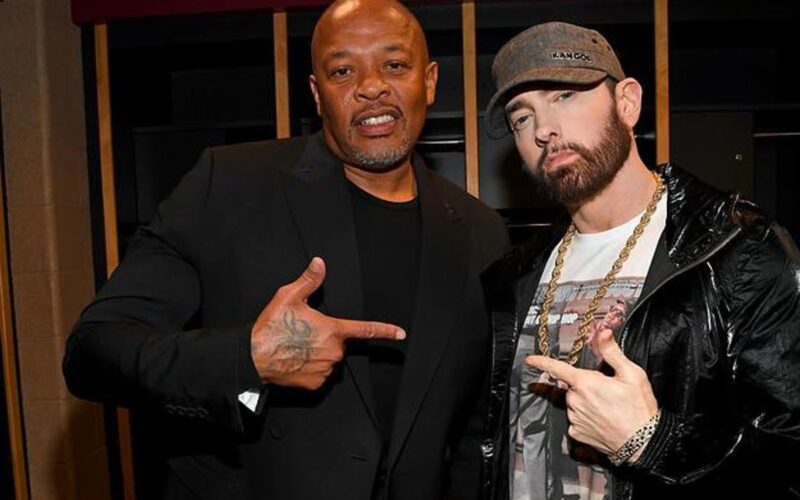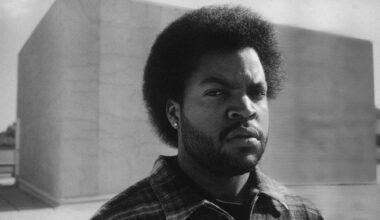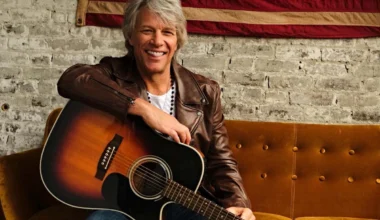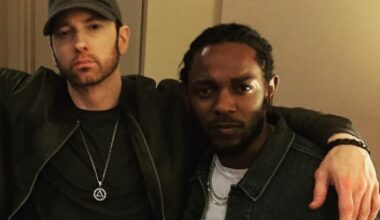It’s impossible to ignore the influence of Dr Dre. Not only did he create history as the architect of the NWA, but that’s just the first chapter of his story. Dre is a hip-hop legend in his own right and possibly the genre’s most treasured producer. On top of that, Dre also has an eye for talent, which is incomparable with anybody else around. His willingness to collaborate with artists based on talent alone, throwing name value out of the window, has opened doors for obscure rappers to break through and become stars, with Eminem being the ultimate success story.
Eminem was the rap-battle king of Detroit, and making it in the mainstream was nothing more than a pipedream. Before his fortunes dramatically changed and he became the hottest rapper on the planet, Eminem’s life couldn’t be further from glitz or glamour. He had a young daughter, Hailee, who he was trying to provide for while struggling with substance abuse problems.
Rapping offered him an escape and developed his Slim Shady alter-ego, which gave Eminem the perfect vehicle to plough all his pent up anger into, unleashing a style and flow that few have ever truly grasped. In 1997, he recorded and released his first EP under his new guise, which allowed him to get deeper and darker than ever before.
He’d released an EP the year before, also through local Detroit label, Web Entertainment, but his reputation failed to grow outside of his area. Instead, he kept battling as a way of staying sharp, ensuring that his rhymes were on point, should the opportunity arise.
That same year his fate changed at the flick of a finger after his performance at the Rap Olympics. It was at this seismic event that an intern from Interscope Records saw his performance and became mesmerised. Not only was Em a fearsome foe when it came to battling — lyrically, he is in a class of his own and on stage, his charisma shone through — but he had star power too. After this show, Marshall Mathers’ life would never be the same.
“I heard something in the kid who gave it to me,” Dre’s partner in crime, Jimmy Iovine, told Rolling Stone. “He was 19, an intern. He said, ‘I heard a tape on the street, at this rapathon.’ I said, ‘Tell you what – people helped me a lot when I was your age. I’m gonna do something for you. Bring me the CD, and I’ll play it to Dre. I trust you enough.’ It was a combination of the kid and what I heard. And it all came together. But that’s producing.
“I put him with Dre. I listen to music in my gym. Dre came by. I said, ‘Before you leave, take this. It’s a white rapper who sounds like his pants are on fire. He’s one pissed-off white guy.’ He says, ‘OK, I’ll check it out.’ — Dre says about six words a day. He calls me when he gets home: ‘Have this kid out here on Monday.’”
Although this kind of statement sounds like the stuff of hyperbole, Dre’s recollection of the event matches up with Iovine’s. The rapper and producer remembered: “In my entire career in the music industry, I have never found anything from a demo tape or a CD. When Jimmy played this, I said, ‘Find him. Now.’”
In the must-watch Netflix documentary, The Defiant Ones, which delves into how Dre and Iovine became the most unlikely yet formidable partnership in music, both the NWA rapper and Eminem look back at that special day when they first met.
“Eminem comes in in this bright yellow fucking sweatsuit, hoodie, pants, everything… it’s bright fucking yellow, and I’m like, ‘wow,’” Dre says, remembering his first impression of Shady. Meanwhile, Eminem remembered how hard it was to act cool during that meeting: “I’m looking at Dre like, ‘Dude, I see you on TV all the time — you’re one of my biggest influences ever in life.” Within hours of this meeting, the duo began working together in the studio. Dre found the young rapper a beat, and Em began spitting right away, applying lyrics to what would eventually become ‘The Real Slim Shady’.
Since that meeting, Eminem and Dre formed an unbreakable bond which saw the battle rapper from Detroit start working under his stewardship and become an even bigger star than his mentor. His association with Dre helped stop people from writing Shady off because he is a white rapper, which comes with a fair share of scepticism.
With Dre’s stamp of approval, Eminem was on a one-way ticket to greatness.







